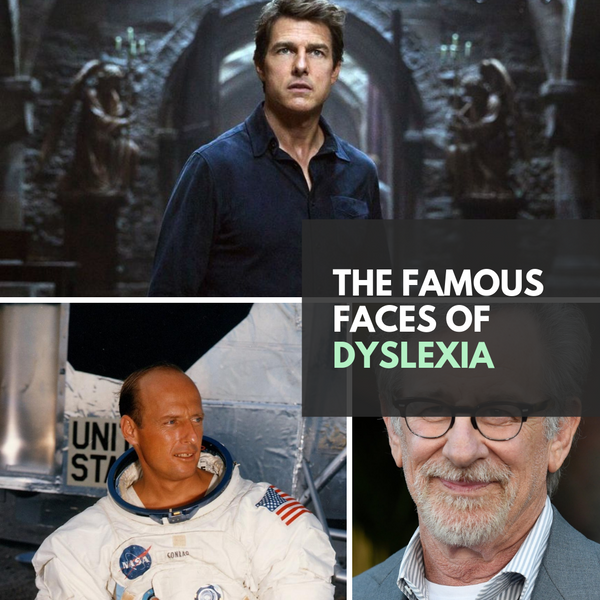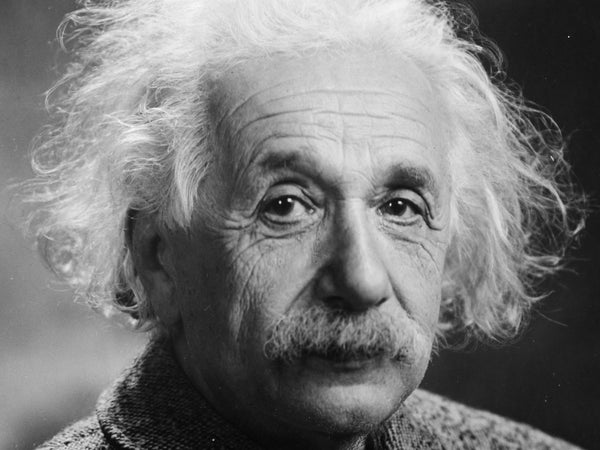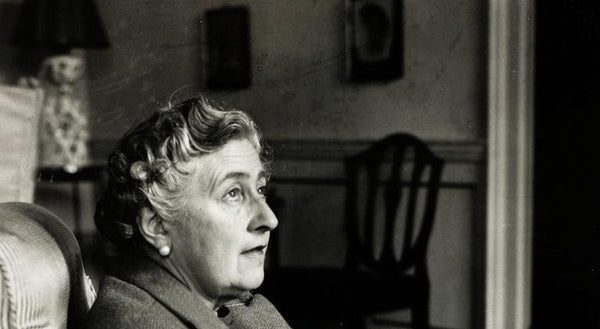The Famous Faces of Dyslexia

A common myth is that dyslexia affects one's intelligence, and limits one's ability to succeed in life. If these famous names prove anything, it's that many people at the top of their fields are dyslexic. Dyslexia should never stop an individual from discovering, writing, reading, experimenting, and doing all things creative! With the appropriate academic and social support, dyslexic kids and adults can accomplish anything! Here are a few profiles of some world-class actors, musicians, sports players, writers, and scientists who have one thing in common: they all have dyslexia.

1. Albert Einstein - Theoretical Physicist; Nobel Prize in Physics (1921)
As a young boy, Einstein had great difficulty with word retrieval, and did not start speaking until the age of three. He also struggled to grasp foreign languages which led a teacher to predict that "nothing good" would come of him. Einstein said himself that "words or language, as they are written or spoken, do not seem to play any role in my mechanism of thought". Despite these reading and verbal difficulties, Einstein excelled in visual imagination and spacial reasoning. He attributed the concept of his theory of relativity to a thought experiment in which he envisioned himself in a streetcar traveling at the speed of light. It is hard to imagine a world without Einstein, as many contemporary products and technologies cannot exist without his discoveries.

2. Leonardo da Vinci - Polymath of the Italian Renaissance
Leonardo da Vinci was a man of enormous intellect and imagination that allowed him to create (at least on paper) inventions such as the bicycle, the helicopter, a submarine and an airplane, centuries before they would come to fruition. Sigmund Freud, an Austrian neurologist and the founder of psychoanalysis, stated that Leonardo da Vinci was "a man who awoke too early in the darkness, while others were all still asleep". Da Vinci is also known for his extensive interest in the interconnectedness of science, nature and art. This led him to the pioneering research in neuroanatomy, with some of the most accurate anatomical sketches of this period.
While dyslexic was first recognized centuries after Leonard da Vinci's time, art historians and medical professionals have discovered clues that he may have been dyslexic. One indication is his handwriting in which he wrote most of his notes in reverse, a trait sometimes shared by other left-handed dyslexics. His spelling is also referred to as erratic and quite strange, a contrast to his perfectly detailed and precise art. Salvatore Mangione, an associate professor in the Department of Medicine, states that "dyslexia is probably one of the things that made da Vinci so creative, made him Leonardo".

3. Pablo Picasso - Spanish Painter and Sculptor
Picasso was one of the most dominant and influential artists during the first half of the 20th century. He not only pioneered cubism alongside Georges Braque, but he also invented collage, and made huge contributions to surrealism and symbolism. His most well-known works include Les Demoiselles d'Avignon (1907) and Guernica (1937), both of which played revolutionary roles in the development of Modern Art.
While Picasso evidently met success in his adult life, his early schooling years were filled with failed attempts to keep up with his schoolmates. He was routinely punished for his disruptive behavior, and the term "reading blind" was eventually attached to his name - an attempt to explain why the orientation of letters were constantly changing while he read. Picasso's artwork can also be read as a mirror of his condition, with several objects upside down, twisted, out of perspective, or mismatched in proportion.

4. Agatha Christie - Writer
Agatha Christie was a prolific mystery writer and playwright from England, best known for her 66 detective novels and 14 short story collections. She is the best-selling author of all time; her works selling over two billion copies in 103 languages worldwide. She wrote the world's longest-running play, a murder mystery, The Mousetrap. Agatha Christie was made a Dame in 1971 for her contribution to literature.
Early on, Agatha Christie recognized her difficulty to read and spell. She stated, "I, myself, was always recognized ... as the "slow one" in the family. It was quite true, and I knew it and accepted it. Writing and spelling were always terribly difficult for me. My letters were without originality. I was ... an extraordinarily bad speller and have remained so until this day". However, she did not let this word acquisition difficulty stop her from writing. Instead, she let her creativity and "out of the box" thinking guide her stories, producing works that are marvelled at for their ingenuity.

5. Tom Cruise - American Actor and Producer
Throughout this career, Tom Cruise has gained three Golden Globe Awards, as well as three nominations for Academy Awards. He is one of the highest-paid actors in Hollywood, with a net-worth of $570 million. Tom Cruise is well-know for his performances on Top Gun, Jerry Maguire, The Last Samurai, and Mission Impossible (to name a few). For someone who delivers his lines so flawlessly, it is hard to believe that he struggles with reading. Tom Cruise struggled with reading and writing throughout his younger years, and was eventually diagnosed with dyslexia at the age of seven. He describes his younger self as a "functional illiterate". Since his diagnosis, he has trained himself to focus his attention, stating, "I became very visual and learned how to create mental images in order to comprehend what I read". As an actor, Cruise's job requires reading scripts and memorizing lines, but he never lets dyslexia stop him from smashing his goals.

6. Mick Fleetwood - Co-Founder and Drummer of the band Fleetwood Mac
Mick Fleetwood's band Fleetwood Mac have sold more than 120 records worldwide, making them one of the word's best-selling bands. They have received a Brit Award for their Outstanding Contribution to Music, as well as an induction into the Rock and Roll Hall of Fame (1998). In Mick Fleetwood's recent memoir, Play On: Now, Then, and Fleetwood Mac (2014), Mick credits dyslexia for his drumming style that has been described by many as causal, nontechnical and inexplicable. In his memoir he states, "dyslexia has absolutely tempered the way I think about rhythm and the way I've played my instrument ... by nature, what we drummers do is manage a series of spinning plates ... [but] my methods of keeping my plates spinning are entirely my own". Mick found his love for music after years of struggle in school. Music became an avenue where he could express his thoughts and feelings that he had difficulty expressing in written and verbal terms.

7. Ann Bancroft - Polar Explorer and Environmentalist
Ann Bancroft is one of the world's most preeminent polar explorers, receiving numerous awards for her accomplishments and public service. In 1986, she became the first woman in history to cross the ice to the North Pole, traveling 1,000 miles by dogsled from Canada's Northwest Territories. In 1992-1993, she then headed an all-woman team to the South Pole, becoming the first female to cross the ice to both the North and South Poles. She later teamed up with Norwegian explorer Liv Arnesen to become the first two women to sail and ski across the Antarctic landmass.
Bancroft believes that her experiences with dyslexia has better equipped her to handle whatever challenges life presents. It also played a pivotal role in her choice of career, as her difficulty in school meant that we found close ties to the natural world, as she claims it "was a perfect place to feel at home and express myself". Bancroft now speaks openly about dyslexia with dyslexic children and their parents. When asked if she would change anything about her life if given the opportunity, she responds, "I don't know anyone with dyslexia who would change". She believes dyslexia is a great asset, as it has given her the determination and exemplary work-ethic that is necessary for her expeditions.

8. Pete Conrad - NASA Astronaut
Pete Conrad was the third man to walk on the moon (following Neil Armstrong and Buzz Aldrin), as well as a highly respected aeronautical engineer, naval officer and aviator. Throughout his schooling, he struggled with undiagnosed dyslexia, which led to him flunking most of his 11th grade exams, being labelled as "lazy" by teachers, and eventually being expelled from his private school. However, his mother refused to give up on his education, and found a school in New York that used a different learning approach. After only two years at the school, Conrad excelled so much that he gained a place at Princeton University on a Navy ROTC scholarship. After his first moon landing, he was quoted as saying, "that might have been a small step for Neil, but that's a long one for me!".

9. Jamie Oliver - Celebrity Chef
Jamie Oliver is a British chef who has achieved worldwide fame with his television shows The Naked Chef (1999) and Jamie Oliver's Food Revolution (2010-2011). He is also the author of a large number of cookbooks covering a variety of culinary themes. However, Jamie Oliver's life wasn't always filled with fame and success. In primary school, Oliver was placed in the special needs classroom for five years due to his struggle to grasp reading and writing. His school did not recognize his dyslexia, and failed to provide him with proper supplementary or alternative help to excel in school. Nonetheless, this pushed Oliver to build upon his practical skills. He started working in restaurants at an early age, and attended the Westminster Catering College at the young age of 16. Jamie Oliver is now quite vocal about his dyslexia. He asserts, "being dyslexic or having special needs is not an excuse or reason for you not to prosper".

10. Steven Spielberg - American Film Director, Founding Pioneer of the New Hollywood Era
Steven Spielberg is known as one of the most creative filmmakers in history, achieving box office records with the blockbuster films Jaws, E.T., and Jurassic Park. He has also received an Academy Award for Best Director for the films Schindler's List and Saving Private Ryan. In 2012, his historical drama Lincoln received 12 Academy Award nominations. Steven Spielberg was diagnosed with dyslexia later in his life in 2007, when he was 60 years old. Throughout his schooling, his inability to read meant that he was often bullied by his classmates, and was labelled as lazy by school administrators. Filmmaking became Spielberg's therapy. He states, "movies really helped me, kind of saved me from shame, from guilt, from putting it on myself ... I think making movies was my great escape, it was how I could get away from all that".
These are just a few of the amazing dyslexic creatives, explorers, sports players, academics, and entrepreneurs out there. Can you think of others? Let us know in the comments below!

Comments
0 Comments
Leave a Comment